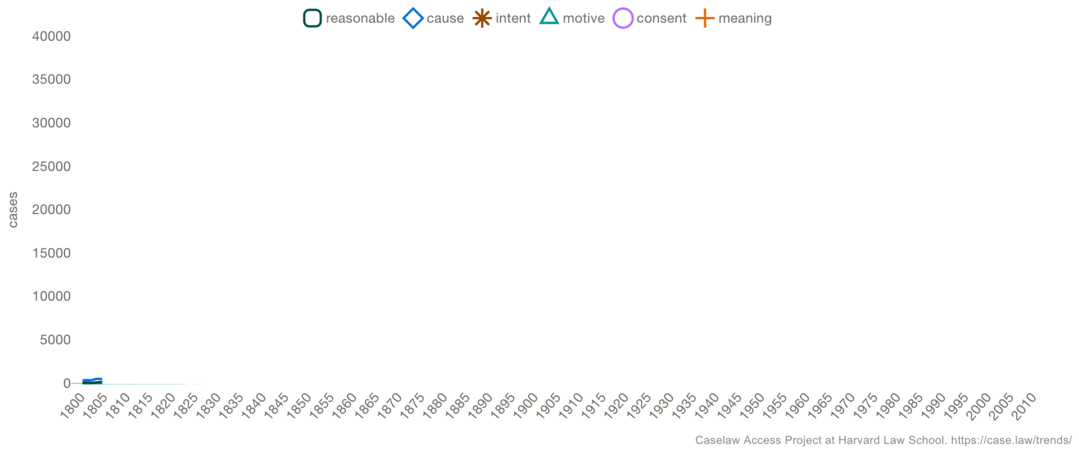
Welcome to the Law Lab!
A lab for the study of law & language,
at Georgetown University Law Center.
The Law Lab conducts research in "experimental jurisprudence." For a short introduction to that field, see here. For a longer introduction, see here.
This research stems from the observation that law relies on many concepts that also appear in ordinary life:
-
Did he exercise reasonable care;
-
what caused the outcome;
-
did she intend the action;
-
what was their motive;
-
was there consent in the agreement; and
-
what is the text's meaning?
These concepts, like reasonableness, causation, and intent, have long played a central role in law. As the annual number of U.S. cases grows, so does citation of these central concepts.


For each of these concepts there is a crucial question: How does the legal concept differ from the ordinary one?
This is fundamentally a "jurisprudential" or legal-philosophical question. Consider a passage from legal philosophers Tony Honoré and John Gardner (2010) on the notion of causation:
.jpg)
Our first question about legal causation is "whether and to what extent causation in legal contexts
differs from causation outside the law, for example in science of everyday life."
"The Jury" (J. Morgan, 1861)
The Law Lab continues in this philosophical tradition:
investigating legal concepts and their relation to ordinary concepts.
To do so, we take a somewhat unconventional approach to legal philosophy: "experimental jurisprudence".
This approach supplements traditional philosophical methods with empirical methods, to understand how laypeople and experts understand the law.
For example, to fully answer the jurisprudential question "how does a legal concept differ from the ordinary one?", it is helpful to more fully understand the features of the ordinary concept. The cognitive science of ordinary cognition can contribute importantly to this (jurisprudential) inquiry.

For each legal concept there is a second crucial question: What should the legal concept be?
For example, consider Honoré and Gardner's second question about causation:
"What are the appropriate criteria in law for deciding whether one action or event has caused another?"

This question applies broadly: how should law decide what's reasonable, intentional, or a cause?
Empirical studies cannot directly answer this question about what law should be. But, an empirical approach offers unique insight by providing new knowledge of the rich set of conceptual features to evaluate. Learning more about how concepts (legal and ordinary) actually operate provides greater insight into debates about how those concepts should be applied.